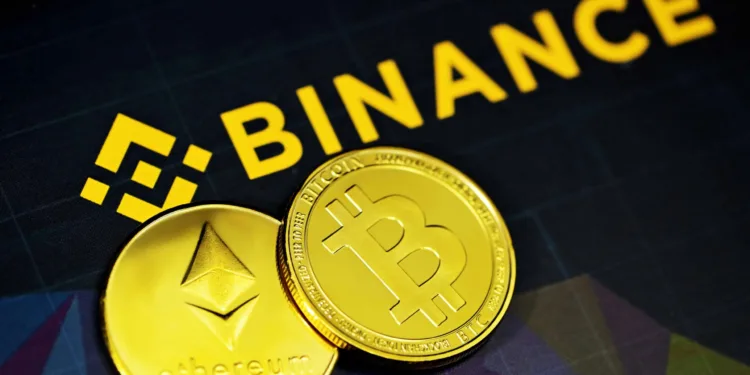Binance, on Tuesday, March 5, 2024, disclosed its plan to stop all naira transactions on its platform. This development follows the Nigerian government’s scrutiny and clampdown on the cryptocurrency exchange.
In a notice addressed to its users, Binance disclosed that naira withdrawals would no longer be available for its users from Friday, March 8.
The cryptocurrency exchange further said on Thursday, March 7, it would delist any existing naira pairs from its platform.
“Users are encouraged to withdraw NGN, trade their NGN assets or convert NGN into crypto prior to the discontinuation of these NGN services,” the notice read.
Fintech Telex understands that Binance operates a platform that serves as a window for peer-to-peer crypto transactions, ultimately giving room to users to advertise interest in selling or buying currencies of their choice.
Possible reason
The discontinuation of naira transactions on Binance is not unconnected to the breaches concerns raised by the Central Bank of Nigeria (CBN).
Premium Times recently reported how the President Bola Tinubu-led government blocked Binance, and other cryptocurrency companies to avert what it considered continuous manipulation of the forex market and illicit movement of funds.
The other affected crypto companies were —Forextime, OctaFX, Crypto, FXTM, Coinbase, Kraken, among others.
READ ALSO: American University Confers Doctorate Degree On Enabulele
According to the Nigerian government, Binance and other crypto firms became a subject of scrutiny following reports that currency speculators and money launderers were using them to execute criminal activities. They believed the ‘criminal activities’ going on, on the platforms were contributing significantly to the weakening of the naira.
This is, however, not the first time Nigerian authorities raised concern about Binance, and its operations.
Recall that last year’s September, Nigeria’s Securities and Exchange Commission (SEC) published a disclaimer on Binance Nigeria Limited, saying the platform was “neither registered nor regulated by the Commission and its operations in Nigeria are therefore illegal”.
The fate of crypto users in Nigeria
Binance’s decision to suspend naira transactions has sent ripples through the Nigerian crypto community, leaving many users scrambling for new options. This move, while seemingly sudden, stems from a complex interplay of factors that impact both the platform and its users.
For Nigerian crypto enthusiasts, the biggest immediate consequence is the loss of a convenient and familiar avenue for buying and selling digital assets. They are now forced to explore alternative platforms, many of which may not offer the same level of user experience or liquidity as Binance. This shift could translate into higher transaction fees and potentially less favorable exchange rates, adding a layer of friction to their crypto activities.
Furthermore, the suspension has the potential to dampen the overall liquidity of the Nigerian crypto market. With a significant volume of naira-denominated transactions previously occurring on Binance, its absence could reduce the overall trading activity and make it more difficult for users to find buyers or sellers for their desired cryptocurrencies.
Meanwhile, regulatory uncertainty surrounding crypto transactions in Nigeria is a major concern. To address these concerns, the country’s central bank had imposed strict regulations, and Binance might be exercising caution to avoid any potential violations.
It’s worth noting that stricter Anti-Money Laundering (AML) and Know Your Customer (KYC) requirements from Binance could pose challenges in verifying the identities of Nigerian users due to limitations in the country’s KYC infrastructure.
What experts are saying …
Among the financial, and crypto experts that have aired their ideas to the Nigerian government is –Bright Enabulele, the creator of Oduwacoin.
Enabulele recently expressed his opinion that clearer and more defined regulations from the CBN, specifically addressing crypto transactions would provide much-needed clarity and potentially encourage Binance to re-enter the Nigerian market.
The crypto evangelist further stated that efforts to improve the KYC infrastructure in Nigeria could make it easier for Binance to verify user identities, addressing a key concern.










